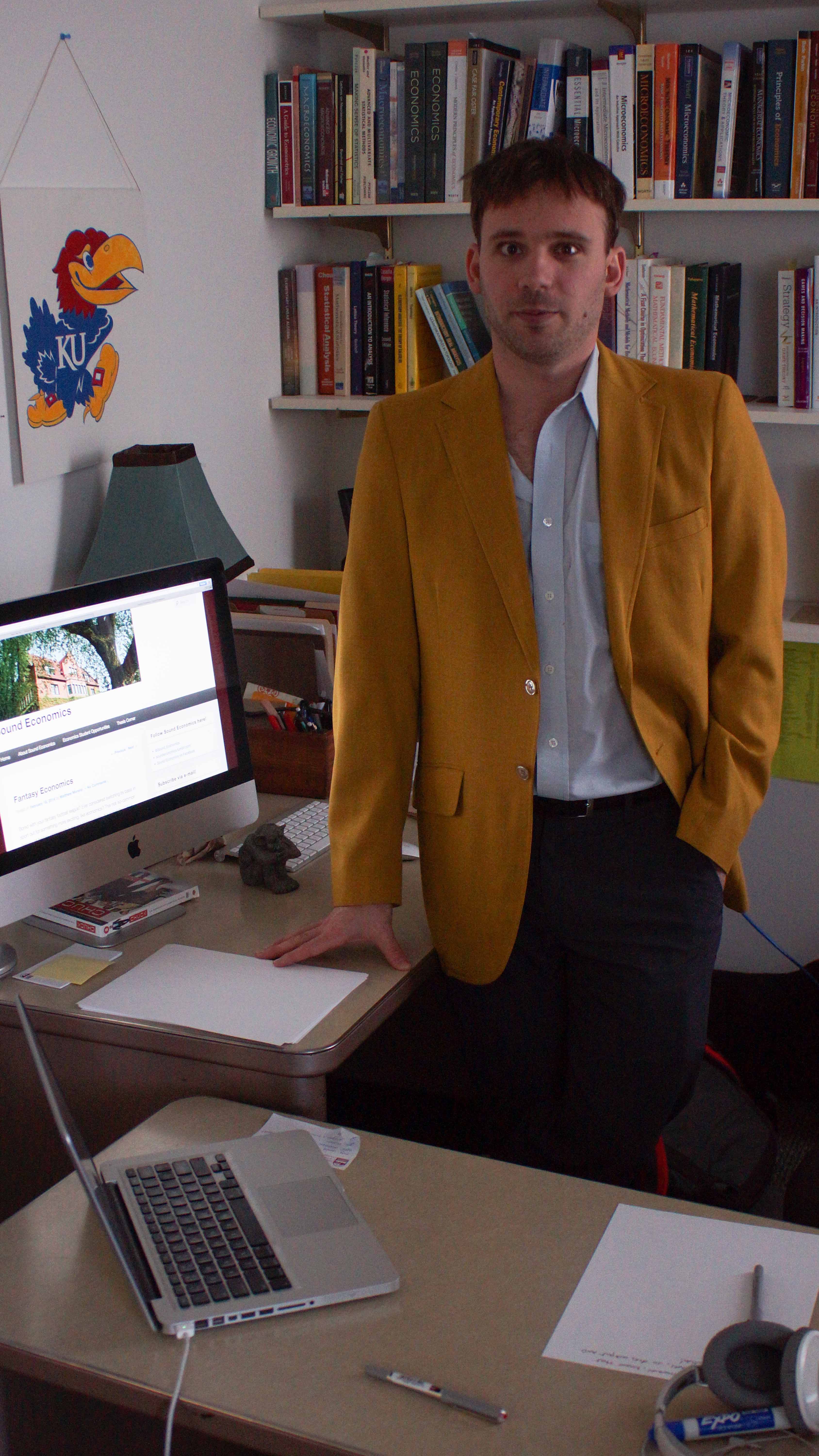
Sound Economics, the student economics blog, offers students of all disciplines a simple, quick and easy access to the world of economics.
It was started last semester by Andrew Monaco, Assistant Director of the Economics Department, in a few week trial run. The blog picked up steam this semester and is looking to broaden its readership.
Monaco started the blog partially because of the rate at which economic conversations happen in the economic world on a day-to-day basis.
“I got here in August and I started to meet our students and I realized that, especially the econ students, they’re really interested in what’s going on… and they have things to say. I wanted them to have an outlet, to have a forum where we talk about those things that interest them,” Monaco said.
While the blog name and subject may imply that only Economics students will be interested, Monaco and the writers of the blog write for the entirety of the student body.
“I think economics has a reputation for being somewhat rigorous and either boring or tough to understand or tough to get into because I don’t know what they are talking about, but we see the economics blog as kind of an everyday economics blog, so we can read a little article each day and you can get a little bit of an idea of what’s happening here and there,” Monaco said.
In fact, the blog purposefully targets students outside of the Economics Department.
“Our goal at Sound Economics is to make economic terms and language a little easier and accessible to non-econ students,” Holly Ross, a Sound Economics writer, said.
The student writers pick topics that they believe will be interesting and relevant to the lives of their peers. Some of the articles have ranged from the controversy of the minimum wage to Bitcoin to financial aid for students.
“I just write about what I find interesting,” Matthew Moreno, a Sound Economics blogger, said.
While the student bloggers share an interest in economics, they are also passionate about sharing what they love with the student body.
“We just want economic theory more accessible because it can be applied to so many different ideas,” Collin Hoover, one of the Sound Economics writer, said.
The ways in which economics can be applied can be a bit arbitrary for students who have never taken an economics course in their life, but Ross pointed out that anything from water to YouTube can and does have economic implications.
“People always think of economics as money, currency, buying things; but we can also look at road safety and health and the impacts it has on a nation,” Jared Soares, another Sound Economics blogger, said.
The Sound Economics blog is always trying to help students understand and discover ways in which economics can at least unravel some of the mysteries that we encounter in everyday life.
“Sometimes just having a small economic tool kit to help you see the world a little bit differently and answer some of those questions that bug you in your head,” Monaco said.
In addition to wanting to expand their readership, the people working to make Sound Economics possible are also trying to expand their own numbers.
“We are always looking for new writers,” Monaco said. The blog currently has six student writers contributing on a weekly basis and a faculty member (Monaco) who monitors the blog.
The blog is open to anyone who is interested in economics. “You don’t have to be an econ major to write for the blog,” Monaco said.
Currently, the blog has a wide range of students from seniors who are working on their theses for Economics to freshmen who only have a semester of Econ 170 under their belts.
The only requirement to being a writer is that you are interested or want to become interested in economics.
“I really like econ but I was uninvested. I didn’t keep up with economics outside of the classroom and so I thought joining Sound Econ would encourage me to explore more topics outside of class,” Ross said.
“It’s an opportunity for students to cultivate our own interest and the amount of reading that we are doing in current events and also to share interesting tidbits with the general public,” Moreno said.
The blog also give students the opportunity to engage in dialogue with each other; it is not uncommon for students to write articles in response to what a peer may have written last week, bringing new information to light or offering their own opinion.
Check out Sound Economics at http://blogs.pugetsound.edu/econ/ and follow them on Facebook, Twitter and Tumblr or sign up for their email list to be notified when a new article is posted.
If any students are interested in becoming writers for the blog, simply visit the page and look for the drop down menu labeled ‘Economics Students Opportunities’, select ‘Write for Sound Economics’ and fill out a brief form.
